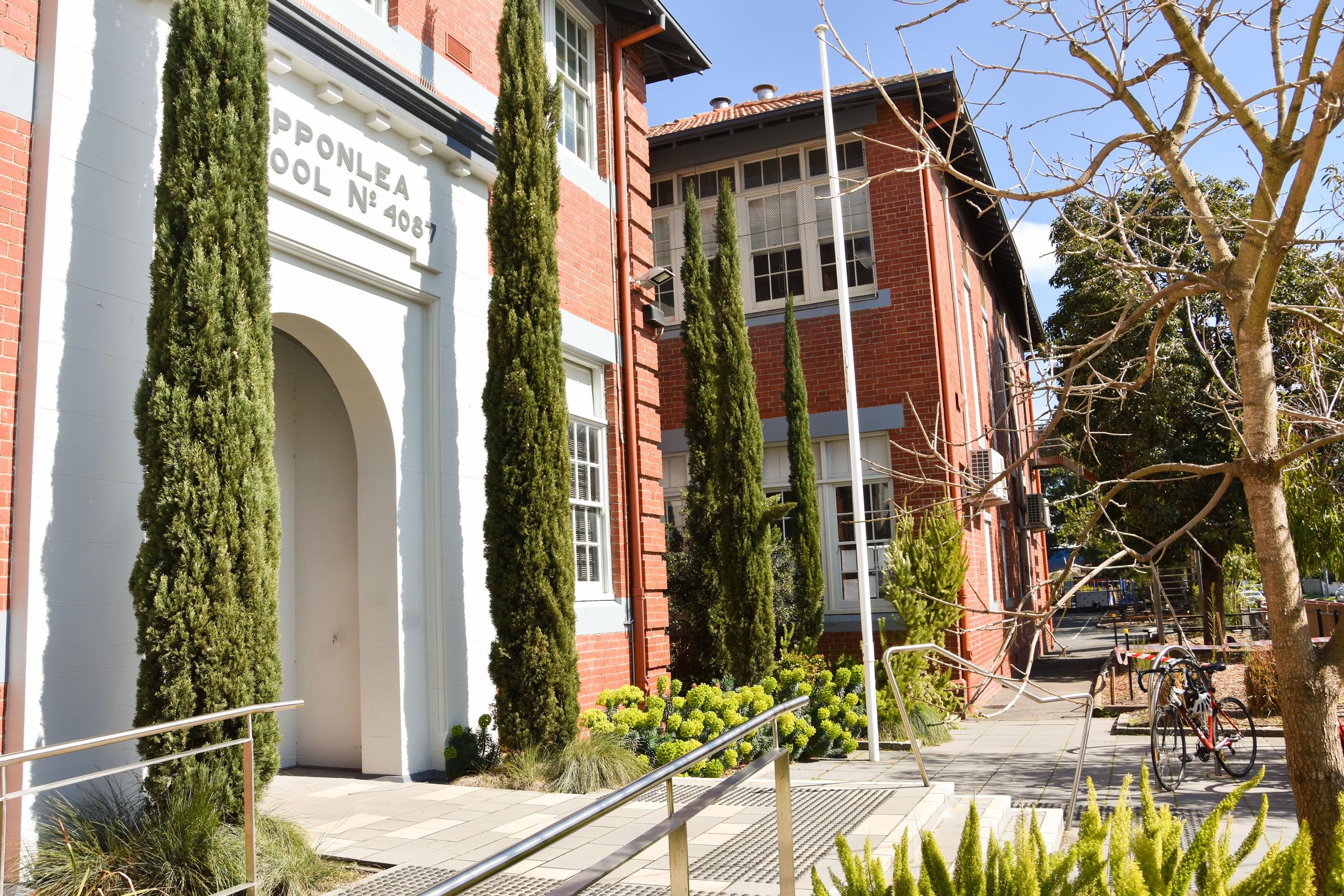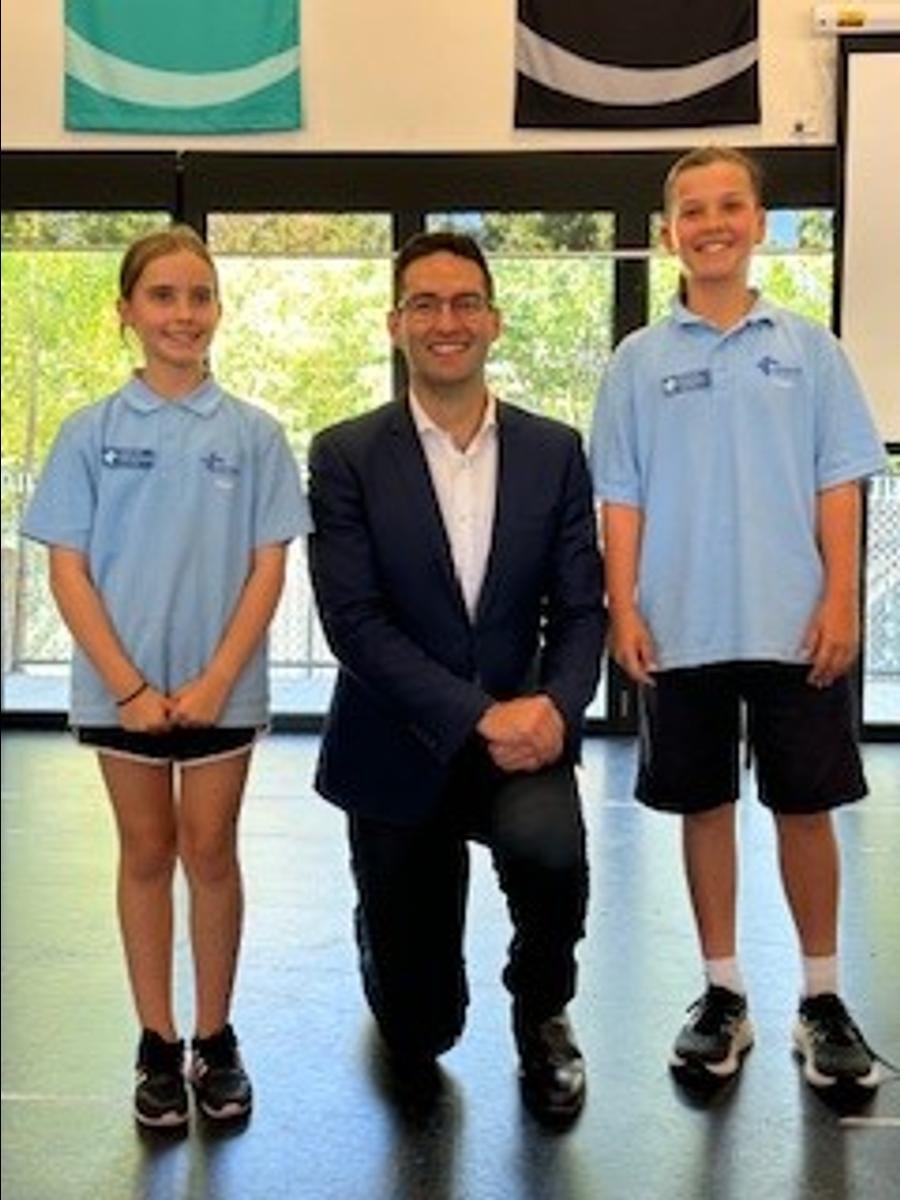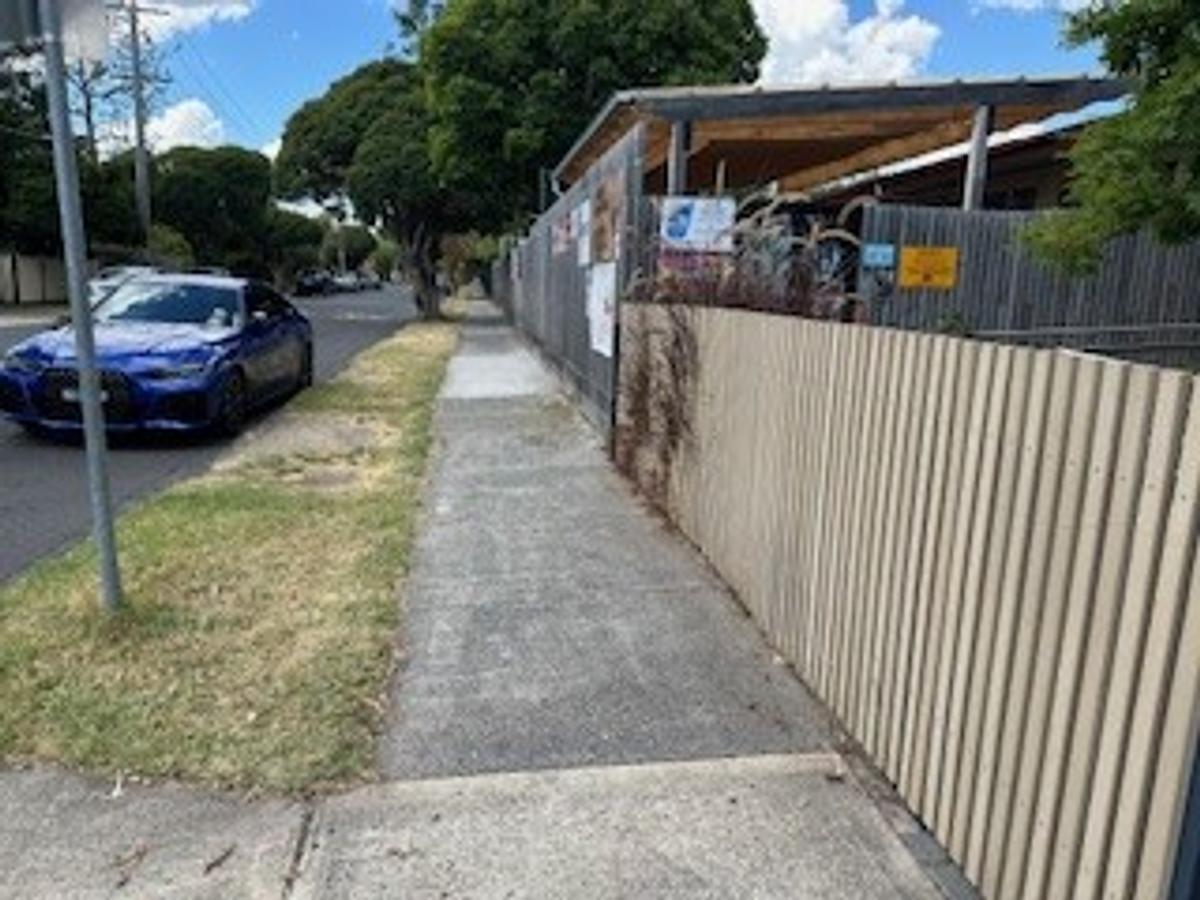Principal Team Message
Term 1 - Edition no: 4, 2024

Principal Team Message
Term 1 - Edition no: 4, 2024
In the contemporary landscape of education, fostering holistic well-being among students has emerged as a paramount objective for schools worldwide. At RPS, this commitment to nurturing the comprehensive wellness of students is deeply ingrained within the ethos of the school.
We understand that well-being is not a singular pursuit but a multifaceted endeavour that requires a synergistic integration of various practices and frameworks.
At the heart of RPS's approach lies a recognition of the interconnectedness of different aspects of well-being, from mental and emotional health to social dynamics and personal development.
The school embraces a variety of robust well-being practices, each contributing uniquely to the overarching goal of promoting wellness among its students.
One of the foundational pillars of RPS's approach is the Positive Behaviour Support (PBS) framework. PBS is a proactive system that fosters a positive school culture by emphasising clear expectations, teaching and reinforcing positive behaviours, and providing support to students who may require additional assistance. Through PBS, RPS cultivates an environment where students feel safe, respected, and empowered to thrive academically and socially.






In addition to PBS, RPS prioritises the principles of Resilience, Rights and Respectful Relationships. By instilling an understanding of human rights, resilience in the face of challenges, and fostering respectful interactions among peers, RPS equips students with essential life skills that extend far beyond the classroom.


Furthermore, RPS recognises the significance of addressing topics related to sexuality and health within its curriculum. Through a comprehensive Sexuality and Health Curriculum, students are provided with accurate information, guidance, and support to navigate complex issues related to their physical and emotional well-being. This curriculum empowers students to make informed decisions, develop healthy relationships, and embrace their identities with confidence and respect.


Moreover, RPS integrates the Personal and Social capabilities outlined in the Victorian Curriculum. These capabilities encompass a broad range of skills and dispositions, including self-awareness, self-management, social awareness, relationship skills, and responsible decision-making. By embedding these capabilities across various learning experiences, RPS ensures that students have the necessary tools to navigate challenges, build meaningful connections, and thrive in diverse social contexts.
As RPS continues to uphold its commitment to holistic well-being, the challenge for its Student Engagement and Well-being (SEWB) team lies in creating a cohesive scope and sequence that seamlessly incorporates all essential features of each approach. This involves careful planning, collaboration, and alignment of curriculum objectives to ensure a coherent and progressive learning journey for students.
The SEWB team at RPS recognises the importance of maintaining a balance between addressing immediate needs and fostering long-term resilience. By strategically integrating PBS practices, Resilience, Rights and Respectful Relationships principles, Sexuality and Health Education, Restorative Practices and Personal and Social capabilities into the school's curriculum, RPS endeavours to create a supportive environment where every student can thrive.
The school's Annual Implementation Plan is essentially a detailed roadmap that outlines the specific actions, initiatives, and goals we aim to achieve within the upcoming academic year. This plan is crafted based on the broader Strategic Plan of the school, which sets the long-term vision and goals for the school. The school's Strategic Plan typically spans 4 years, outlining overarching objectives, priorities, and strategies to guide the school's development and growth.




Strategic Goal: To increase student learning in literacy and numeracy.
Key improvement strategies: Improve Data Literacy Skills
Build capacity in Numeracy through formative assessment practices and differentiation in order to identify and meet students’ individual learning needs.
What does this mean?
Alright, parents, let's talk about how we can help our kids get better at math in a way that suits each of them personally. Our goal here is to make sure every child can understand and do math at their own pace and in their own way.
First off, let's break it down a bit. "Numeracy" is just a fancy word for being good with numbers and math skills. We want our kids to feel confident with numbers, whether it's counting, adding, subtracting, multiplying, or dividing.
Now, "formative assessment practices" means we're going to check in with our kids regularly to see how they're doing with math. It's like taking little snapshots along the way to see if they're getting it or if they need some extra help. We'll do this in a way that's not too stressful for them, more like a friendly chat or a fun activity.
Next up, "differentiation" means we're going to treat each child as the unique learner they are. Just like how we don't all learn to walk or talk at the same time, we won't all learn math in the same way or at the same speed. Some kids might need a little more practice with certain concepts, while others might zoom ahead. That's totally okay!
By doing all of this, we can figure out what each child needs to succeed in math. Maybe one child needs more practice with addition, while another needs help with understanding fractions. We'll tailor our approach to meet each of their individual needs.
So, our goal here is simple: we want to help our kids to become confident and capable with math by checking in on their progress regularly and giving them the support they need, whether that's a little extra practice, a different way of learning, or just some encouragement along the way.
What does this mean:
Peer observation in education refers to a practice where teachers observe and provide feedback to their colleagues within the same educational institution or setting. It's a form of professional development aimed at improving teaching practices and fostering a culture of collaboration and continuous improvement among educators.
Here's how peer observation typically works:
Peer observation offers several benefits:
Strategic Goal: To improve student wellbeing.
Key improvement strategies: Embed SWPBS
Implement SWPBS features with fidelity and begin integrating Tier 2 academic, behavioural, and social-emotional interventions and supports.
As mentioned in the Social & Emotional Learning Post Above
As mentioned in the Social and Emotional Learning Post Above
Strategic Goal: To improve student voice and agency.
Key improvement strategies:
Build a shared understanding of how to activate student voice, agency and leadership throughout learning.
Building a shared understanding of how to activate student voice, agency, and leadership throughout learning is about involving students more actively in their educational journey.
Student Voice: This refers to allowing students to express their thoughts, opinions, and ideas about their learning experiences. It's about creating an environment where students feel comfortable sharing their perspectives, interests, and concerns.
Student Agency: This involves giving students the power to make choices and decisions about their learning. It means providing opportunities for students to take ownership of their education, set goals, and take responsibility for their actions.
Student Leadership: This entails empowering students to take on leadership roles within the learning environment. It's about fostering skills such as collaboration, communication, and problem-solving, and giving students the chance to lead initiatives, projects, or discussions.
When we talk about building a shared understanding of how to activate these aspects throughout learning, we're emphasising the importance of involving not just teachers and administrators, but also parents and students themselves in the educational process.
Parents can contribute to this by:
Encouraging Open Communication: Encourage your child to express their opinions and ideas about their learning experiences. Listen to what they have to say and show that you value their input.
Supporting Independence: Encourage your child to make decisions about their learning whenever possible. This might involve letting them choose topics for projects or deciding how to approach assignments.
Fostering Leadership Skills: Look for opportunities for your child to take on leadership roles both inside and outside of the classroom. This could be through extracurricular activities, volunteering, or community projects.
Advocating for Student Voice and Agency: Support initiatives within the school that promote student voice, agency, and leadership. This might involve participating in parent-teacher associations or advocating for policies that prioritise student involvement in decision-making processes.
By working together to foster student voice, agency, and leadership, we can create a learning environment where students feel empowered, engaged, and motivated to succeed.
As discussed above
By mapping each year of the strategic plan through annual implementation plans, we ensure that our efforts are focused, coordinated, and aligned with the long-term vision of the school. This iterative process allows us to adapt to changing circumstances, innovate where necessary, and ultimately drive continuous improvement in pursuit of strong student outcomes.
The leadership badge presentation assembly held a special significance for our school community. Not only did it acknowledge the achievements of our students, but it also underscored the importance of leadership in all aspects of life. Josh Burns, Federal MP for the McNamara electorate, presided over the ceremony, engaging the students with thought-provoking questions rather than lecturing on leadership principles.
It was inspiring to witness how each student grasped the true essence of leadership, understanding that it transcends merely wearing a badge. As many students stated - leadership involves stepping up, shouldering responsibilities, assisting others in their learning journey, and showing respect.
We express our gratitude to Josh Burns for his ongoing dedication to our community. He now transitions into a new phase of his life, embracing the role of a devoted father and parent of Ripponlea PS, with his very own Foundation Ripper, and we wish him all the best.


















We are delighted to share with you the tremendous success of our recent Working Bee held a fortnight ago on the weekend. Despite the hot weather conditions, the dedication and enthusiasm of our volunteers made light work of the tasks at hand.
Throughout the day, everyone worked tirelessly to address various areas of concern across the school grounds. Notably, the front of the school, senior playground, and other key areas were meticulously cleared of weeds, thanks to the diligent efforts of our volunteers. It was heartening to witness the long jump pit being rejuvenated, with one of our Foundation parents taking the initiative to trim and remove the weeds, breathing new life into this important area of our school.
From the mini-pitch to the Productive and Koor gardens, every inch of our school grounds received attention during the cleanup. Tasks ranging from tidying up the sandpit and cubby house to managing overgrown creepers near the mini-pitch were efficiently completed. Additionally, efforts were made to enhance the aesthetics and safety of our school environment, such as cleaning moss from the back of the Barrbunin and oiling Mrs. Merlino's deck leading to the LOTE room, leaving them looking fresh and inviting.
The highlight of the day was the unexpected visit from Mr. Gary Forbes, ex-student of Ripponlea Primary School from 1937, accompanied by his daughter. Mr. Forbes took a stroll down memory lane, visiting classrooms and sharing his experiences with our current students. It was a truly special moment as he connected deeply with 5/6B's room and took plenty of photographs to share with his loved ones.
To conclude the day's activities, we gathered together to enjoy some well-deserved refreshments, including tasty sausages, cool drinks, and icy poles for all. It was a wonderful opportunity to celebrate the hard work and dedication of our parent and student volunteers, without whom this would not have been possible.
On behalf of the entire Ripponlea Primary School community, we extend my heartfelt gratitude to each and every volunteer for their invaluable contributions in ensuring that our school grounds are clean, safe, and beautiful.
| Parent Volunteers | Student Volunteers |
|---|---|
| David G | Lila |
| Lenka S and Jim S | Otto and Leo |
| Jason V | |
| Brad C | |
| Ben D | Ethan |
| Fiona F | Lachie and Thomas |
| Kate G | Penny |
| Anjelee K and Julian F | Siya and Brij |
| Michael R | |
| Colin S | Lenny and Nate |
| Rich S and Skye C | Oscar and Kit |
| Alec M | Luc and Frances |
| Lou and Ian M | Max, Rose and Fred |
| Ash G and Dave A | Margot and Harvey |
| Emily and Nick S | Daisy and Harriet |
| Eleanor V and Jake S | Sophie |
| Peter HH | Phoebe and Solene |
















































NAPLAN uses adaptive testing for the online version of the assessment. This means that the difficulty level of questions adjusts based on the student's responses. If students answer a question correctly, they may be presented with a more challenging question next. Conversely, if they answer incorrectly, they may receive an easier question.
Each student's test experience is personalised based on their abilities and performance. This allows for a more accurate assessment of each student's skills, as the test adapts to their level of proficiency.
By dynamically adjusting the difficulty of questions, adaptive testing aims to provide a more accurate measure of student's knowledge and skills across different ability levels.
Because the test adapts to each student's responses, the order of questions can vary widely from one student to another. This means that students may not know what specific questions to expect, adding an element of unpredictability to the testing experience.
In acknowledging the efforts of Year 5 and Year 3 students, it's commendable to recognise the additional challenge they faced in navigating this adaptive testing format, where the questions can vary in difficulty based on their responses. Their dedication and resilience in tackling these dynamic assessments are certainly deserving of praise.








It feels like just yesterday we were welcoming everyone back, and yet here we are, preparing to bid farewell to another term filled with growth, challenges, and accomplishments.
Reflecting on the term that has swiftly passed, it's clear that both our staff and students have felt the pulse of its fast pace. From the youngest learners who have settled into routines with admirable adaptability to our older students who have seized leadership opportunities, engaged in sporting events, and navigated the rigors of academic challenges.
We wish families all the very best in celebrating a multitude of cultural occasions that have enriched our community. From the jubilant festivities of Purim to the solemn observance of the fasting of Ramadan, from the joyous celebrations of Easter to the colourful revelry of Holi, each occasion has brought its own unique significance and meaning to our community.
Purim, with its spirited commemorations of survival and triumph, teaches us resilience in the face of adversity. Ramadan, a period of fasting, prayer, and reflection, fosters empathy and solidarity with those less fortunate. Easter, with its message of renewal and rebirth, inspires hope and renewal. And Holi, with its exuberant colours and joyous festivities, reminds us of the beauty of unity amidst diversity.
Let us embrace the opportunity to learn from one another, deepen our understanding of different cultures, and foster a sense of belonging and inclusion for all members of our school community.
We want to extend my gratitude to our dedicated staff, supportive parents, and resilient students for their collective efforts in making this term a success. As we prepare to embark on a well-deserved break, we encourage everyone to take this time to rest, recharge, and cherish moments with loved ones.
Mrs. Rose will be taking leave at the start of next term. Mrs. Campbell will be stepping into the role of Acting Principal. In addition, some members of our exceptional leadership team will be stepping into Mrs Cmpbell's role, ensuring that all aspects of school operations continue to run smoothly.
Until next term!
Natalie Rose & Marta Campbell
Principal Assistant Principal

